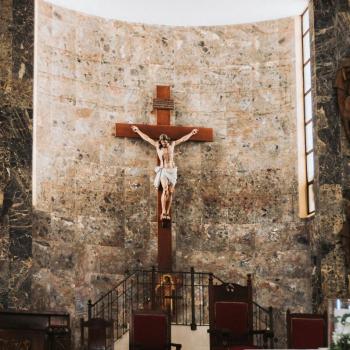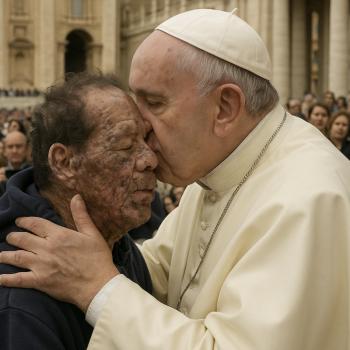Editors' Note: This article is part of the Patheos Public Square on the Future of Faith in America: Catholicism. Read other perspectives here.
The monastery is the prophetic place where creation becomes praise of God and the precept of concretely lived charity becomes the ideal of human coexistence; it is where the human being seeks God without limitation or impediment, becoming a reference point for all people, bearing them in his heart and helping them to seek God. ~ St. John Paul II, Orientale Lumen
As I write this, I have just, in my capacity as Novice Mistress of our Dominican community, welcomed two aspirants — women making extended visits within our enclosure. They will spend some time with us, getting a sense of monastic rhythms and what it is like to live within them, and then they will take their leave, continuing their prayerful discernment outside of our walls. Within weeks, I will possibly welcome two more young women, one from Singapore and another from Texas, who will do the same thing.
Meanwhile, we are anticipating several entrances into our novitiate before the end of the year, and perhaps their number will include a woman from Ireland. Aspirants become novices; novices, if the vocation is true, eventually become solemnly professed nuns, living out their whole lives in service to the world, through the offering of incessant intercessory prayer. In our community, we have had the great joy of announcing a solemn profession each year since 2012, and we anticipate further celebrations.
From the cloister, the future looks encouraging. After a vocation dearth that seemed to last for nearly two decades, our community, and many other monastic houses, are being inundated with inquiries from all over the world. These seekers are well-educated young people who may have more career options before them than ever before, but are discovering that the pursuit of titles and material success leaves them feeling emptier, rather than full.
Raised amid the noise and distraction of the internet and the iPhone, and well-acquainted with a culture that promises stability in neither job nor family life, they are discovering the attractions of the silence and prayer, structure and order, study and work and play that makes up a balanced religious life, whether contemplative or active.
But we shouldn't allow this renewal of interest in the religious life, hopeful as it is, to distort our perceptions; this is not a time for triumphalism. Yes, more young men and women are looking at what it means to consecrate one's life to God and the service of the Church, but overall, the numbers are still dwindling, and if our community — thanks be to God — is in the process of raising funds for a much-needed expansion of our living space to accommodate our growth, other monastic houses — larger but with diminished numbers of residents — are sharing living space, and prayers, with communities who have had to close their doors for a lack of members.
I do believe that our Dominican Order, and the other great religious orders that have historically preserved both church and culture in times of social upheaval, has a vital and relevant role to play in today's world and can provide an authentic response to the spiritual and moral crisis of today. Whether cloistered or in the world, our calling is to proclaim the gospel, always, always, in season or out, whether the message is received with enthusiasm or disdain, and it is our joy to do this.
Yes, there needs to be intellectual response to the moral craziness today, but the need for a spiritual response is most urgent. We must offer the Good News, and the Good News must be lived and spoken in a way that makes it clear: the Truth of Christ makes us free. If we cannot effectively do this, as a church — as layfolk, and religious and clerics — we will have served God poorly, and our failures will contribute to the loss of many souls who are truly in need of the Way, the Truth, and the Life.
Jesus came to save us and to free us from the downward spiral into which today's Cult of the Self inexorably leads us. In Dostoevsky's novel, The Idiot, Prince Myskin says "beauty will save the world." This beauty is that of the Suffering Servant, who died and rose for us. If this really makes a difference for those of us who call ourselves Christians, our witness can transform the world.




